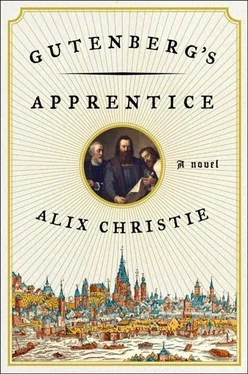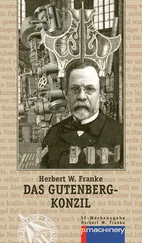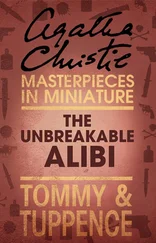They hadn’t seen each other for an age. Jakob had lost weight: his cheeks were sharp, his slicked-back hair gone silver-gray. Small wonder, since he sat upon the council now. His tunic bore the six-spoked wheel of Mainz, picked out in ruby thread upon his breast, a mark of rank to add to the thick ring he wore as leader of the goldsmiths’ guild on his right hand.
“I was just telling Jakob how relieved I am to be back home.” Fust shook his neck as if to throw off the accumulated weight and reached into a cupboard for the brandy.
“As if home is any respite,” Jakob said. His eyes were blue, like Johann’s, only milkier and paler, winter ice.
“Trouble?” Peter asked.
Fust shrugged. “The usual. Thieves and thugs and spies.” He poured three glasses from a crystal flask. Down on the trading floor, the goods he’d brought were being counted and taxed. Where had he been this time, what had he brought? More knotted balls of linens, lace from Ghent, the products of Parisian looms? If he had headed west, perhaps. Around the turning of the century, his grandfather had dealt in powders of all kinds: saltpeter for the men at arms, metals for the smiths, salts and roots for chemists. Johann in his turn had branched out more widely, adding semiprecious stones and manuscripts and other luxuries; he’d built an empire based on the vanity and envy of the minor nobles east of the Rhine. The German counts and margraves had little to compare with the bright baubles of their cousins on the thrones of Burgundy and Savoy, England, Scotland, and France.
“You should have seen the Neckar surging.” Fust grinned and tossed his liquor back. “We damn near lost the load.” How pleased he seemed.
“Heidelberg, then,” Peter said. He’d never seen the castle of the Dukes of Palatine, perched famously above that river gorge.
“Less risky overland. Though who knows for how long.” Fust frowned, with meaning, toward his brother.
“We’re doing all we can.” Jakob pulled his cloak up tighter. There were negotiations between Mainz and the archbishop — if one could call them that. The situation was the same as it had always been: who could be blamed, and who would pay.
Rebstock and Weinberg had been seized, his uncle told his father. Outside of Höchst, along the road toward Frankfurt. By whose order? Fust asked. The archdiocese. The merchants had got off with just a fine, and nothing worse — if Mainzers had been seized by Frankfurt, they’d still be rotting in its jail.
“That’s why I took the woods.” Fust stroked his chin. “Wrecked the axles, had to pay off half the foresters.” The brothers sucked their teeth and shook their heads — like children, Peter thought, or pawns grabbed up at any point along the board. You seize me; I’ll seize you: it was a pointless game. He waited for Jakob to shut up and leave. But this was not to be.
His uncle turned cool eyes toward him. “I hear you’re smelting after all.”
Peter glanced at Fust, who gave a little nod. “You hear well,” he answered, keeping his voice even. The crew in that hot hell was barred from setting foot outside; they couldn’t even slake their thirst or lust among the taverns or the brothels. But somehow Jakob knew.
“We have a certain… dispensation, I suppose you’d call it,” said his father, “with the guild.”
“For now,” said Jakob.
“I’m not much better than a fire-boy.” Peter kept his face toward Jakob. Let Fust hear what he had to say this way.
“It is an honest calling,” his uncle answered.
“That isn’t what I mean.” Their eyes locked; Peter saw that he had never really been forgiven. It was Jakob who had taught him how to smelt and carve — Peter and his own son Jakob the younger, and Keffer, all those half-formed boys who’d been apprenticed at his forge — though since becoming Brudermeister Jakob rarely dirtied his own hands. He was the truest son of Mainz, rooted in the Rhineland soil; he would defend her tooth and nail. He’d never understood how anyone could just pick up and go. To him departure was repudiation: he’d seen his nephew leave not once but twice, his own son taking up the stool the foster boy had shunned.
“I told your father, and I will tell you too,” Jakob said. “This… ‘workshop’”—his voice curdled—“is outside the rules. The man’s an Elder, and no doubt a snake. I plan to keep the closest eye upon it.”
Peter caught his father’s fleeting irritated look. “Why don’t you let me watch my business,” Fust said, “and you watch yours.”
“The one destroys the other, that’s the point.” Jakob drained his glass and stood. How fitting, Peter thought, that he’d ascended to the post of city treasurer. His first act had been cancellation of the Elders’ interest payments. “They either fund the city like the rest of us and pay their tax, or they can bloody well decamp.” He turned to Peter, one hand on the doorknob. “If I were you, I’d watch my back.”
His footsteps faded on the great stone stair. Fust snorted, slicked his hair back. “He always saw the black before the white.” He gave his son a look. “Though there is money to be made, while they are at each other’s throats.”
Roll in the barrel, he said next; Peter fetched it through the small, arched door.
“Something for you.” Fust grabbed a chisel from the rack. He popped the wooden lid and started drawing out the volumes he’d procured. Tomes of canon law, the decretals of Boniface and Gregory, some copies of the cruder sort of romance. And then a packet wrapped in suede: an unbound group of folded sheets, perhaps three quires. He handed it to Peter, who opened it. A calendar of saints filled the left page, in red and black; the right was blank, awaiting a fine painting. “For Duchess Mechtild,” said his father. A lovely copy of the Hours of the Blessed Virgin Mary.
Peter’s body tightened. The lines of the textura hand were a rich brown, exquisite, written with a seamless grace — almost certainly the work of a Carthusian scribe. Textura meant “woven”: the monks had always said the scribe wove his own spirit into God’s.
“What use is this to fire-boys?” Peter’s voice was harsh.
Fust blanched; he genuinely looked surprised. “I thought you might advise me in the painting.”
“As I had thought my life was mine.” Peter pushed the packet back across the desk.
Fust leaned both palms against the wood and stood there looking at him a long while. At last he sat down heavily. “You have not grasped the whole of it.”
“I grasp enough.”
Fust frowned. “You disappoint me, Peter. You, of all people, not to see what this will be.”
“I see a crude and ugly copy of the best that men can do. There’s not a lord alive who’ll touch a book this madman makes, you know it.”
“Not yet.” His father’s nostrils flared. “Not yet — but give it time. You can’t imagine it, perhaps, but I can. Books everywhere, and costing less than manuscripts — in quantities that simply stun the mind. Imagine how the world would look if anyone could buy one!” His eyes fell on the book of hours. “I can’t live just off these. I sell the things, I ought to know.” He raised his eyes to Peter’s own. “In ten years, twenty, who will pay a prince’s fortune for such things? The gentry are not all as rich as that. It’s finished. I am sorry, but it’s true. Once we have found the secret to the letters, there will be no need for scribes.”
“And everything of beauty is destroyed.” Peter rose. “Everything that matters, in the praise of God — or learning — trampled. Do not forget, I know a thing about this business too.”
His father nodded. “Of course. You must defend your interest. Your hands, your trade, I understand. It changes nothing, though. It’s over. The life of scribes, the value in your hands — you may as well accept it now.”
Читать дальше












